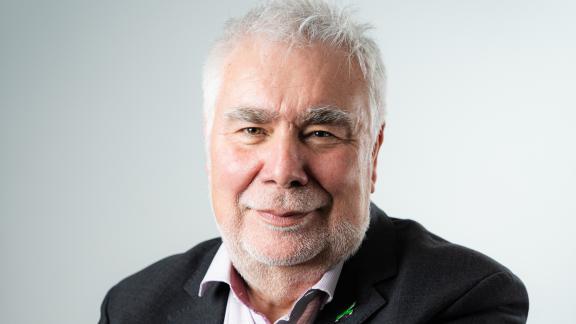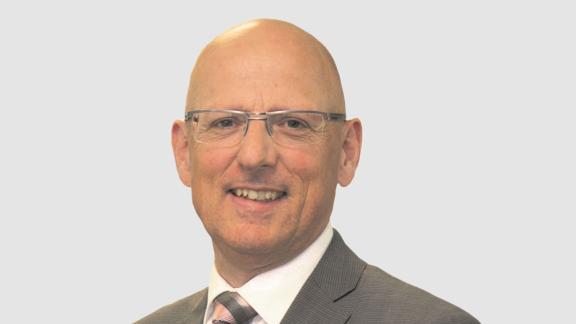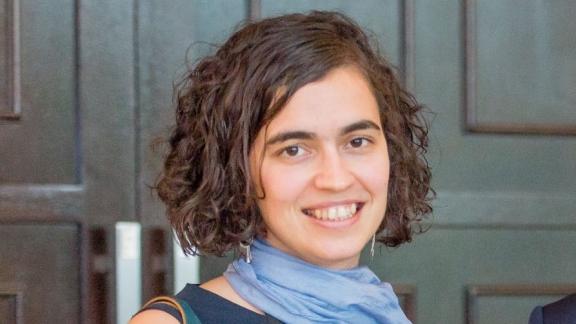The time for action on prevention is now

Humber and North Yorkshire ICB is investing in smoking prevention to improve health outcomes by addressing one of the major causes of lower life expectancy and health inequalities in the region.
“There is never a perfect time to shift the dial to prevention”, said Patricia Hewitt in her recent review. I am acutely aware of this as an integrated care board (ICB) chief executive during this time of significant pressure on the NHS. Demand for hospital treatment was outstripping capacity even before the pandemic. Now healthy life expectancy is going in the wrong direction and the effect is being felt in the economy with more people too sick to work.
When the boat is filling with water it can be hard to make the case that we should move some of our resources away from bailing out and towards plugging the holes
When the boat is filling with water it can be hard to make the case that we should move some of our resources away from bailing out and towards plugging the holes, but move them we must. If ICBs have been established for any purpose it is to give us the scale and the mandate to do things differently and address the long-standing problems that are undermining the sustainability of the NHS.
Shifting to prevention
In Humber and North Yorkshire, a key plank of our strategy has been a shift towards prevention. Before the recommendations of the Hewitt review, we were already exploring how health inequalities funding might be used to better address the things that make our population sick before their time. Chief among these was smoking. Smoking devastates our poorest communities, with half the difference in life expectancy between rich and poor caused by higher smoking rates; a gap the Office for National Statistics recently reported is widening, with a third of all smokers among the 20 per cent most deprived communities.
Although the case for action on smoking is clear and delivers significant returns in terms of improved healthcare outcomes and reduced in-year demand which grows over time, there are always other things we could be investing in that are seen as more urgent.
Prioritising prevention and following through with effective action is a challenge. ASH and Cancer Research UK recently surveyed all ICBs to better understand their work on smoking. Half of responding ICBs felt that addressing smoking was a high priority for their system. However, despite this and additional funding to roll out new tobacco dependency treatment services across the NHS as part of the NHS Long Term Plan, only a third (31 per cent) of ICBs are confident that they will fully implement these important services by 23/24. Beyond this, only half have confidence that these services will be retained when funding goes into baseline and they become part of business is usual.
I will not pretend it has been easy
Many integrated care partnership (ICP) strategies also lack a clear focus on smoking, despite the massive contribution it makes to poor health particularly among the Core20PLUS5 populations. The ASH/CRUK survey found only a minority of ICP plans didn’t mention smoking at all (6 per cent) but that only 13 per cent had specific targets to reduce smoking, although 34 per cent had smoking within a broader objective.
So, how has Humber and North Yorkshire managed to prioritise this work and implement changes that go beyond the commitments of the NHS Long Term Plan? I will not pretend it has been easy.
We must mean what we say
Working with national charity Action on Smoking and Health (ASH), we have launched our new Centre for Tobacco Excellence. I saw first-hand working in the North East the incredible role played by regional programme Fresh since 2009, and our work will be modelled on this and the more recent programme of work in Greater Manchester, both of which take a system-wide approach to tobacco control. Smoking rates have fallen faster in these regions as their strategies combine work to reduce uptake of smoking with promoting quitting at scale.
In practical terms we have used our health inequalities pot to fund this work
In practical terms we have used our health inequalities pot to fund this work. We are investing in a comprehensive programme over a number of years. A large proportion of funding will be invested in mass media campaigns as a proven, cost-effective way to reduce smoking rates by promoting quitting. We will also fund action on illicit tobacco, local place-based activity and enhanced quit support by embedding stop smoking support within our Targeted Lung Health Check programme and introducing financial incentives for pregnant smokers ahead of the national roll out.
As leaders we must make a choice to protect our prevention work from the many other urgent pulls on resources. We must back up this choice in meetings, give staff the space and mandate to develop longer-term strategies and build trusting partnerships with local government. In short, we must mean it when we say that ICBs are here to do things differently and we have to see it through.
Stephen Eames is chief executive of Humber and North Yorkshire ICB. You can follow Stephen on Twitter @stepheneamesnhs



